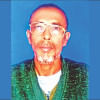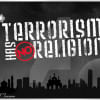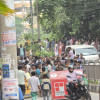Rising number of murders worries UN
The UN rights chief yesterday expressed serious concern over the dramatic increase in brutal murders in Bangladesh and urged the authorities to ensure full respect for human rights in investigating and prosecuting the perpetrators of recent vicious crimes.
“I am very concerned about the dramatically increased number of brutal murders in Bangladesh that target freethinkers, liberals, religious minorities and LGBT activists,” UN High Commissioner for Human Rights Zeid Ra'ad Al Hussein said.
In his opening speech at the session of United Nations Human Rights Council (UNHRC) in Geneva, Zeid shed light on “preventable calamities” and worrying trends in human rights around the world, including detailed concerns about the situation in more than 50 countries.
“I note recent reports of police arrests, and I urge that investigating and prosecuting the perpetrators of these vicious crimes be made a priority, with full respect for human rights,” he said.
He also urged all government officials and political and religious leaders in Bangladesh to unequivocally condemn these attacks on freedom and to do more to protect affected groups.
Meanwhile, international groups working on press freedom and freedom of expression, including the Committee to Protect Journalists (CPJ), made a joint submission to the UNHRC calling for urgent and concrete steps to reverse the deteriorating climate for free expression in Bangladesh.
The joint statement said a “string of murders” of bloggers and publishers since February last year, for which no one has been convicted, has produced an “atmosphere of fear”.
It said the mainstream press, meanwhile, continues to face an array of challenges, ranging from imprisonment of journalists to legal threats.
The written submission was made by PEN International, Canadian Journalists for Free Expression, Center for Inquiry, Committee to Protect Journalists, Dansk PEN, English PEN, European Humanist Federation, Finnish PEN, Freemuse, Icelandic PEN, Index on Censorship, International Humanist and Ethical Union, International Publishers Association, Norsk PEN, PEN America, PEN Bangladesh, PEN Melbourne, Reporters Without Borders and PEN Sweden.
URGENT STEPS NEEDED
The international organisations said the recent years have seen a serious decline in respect for freedom of expression and the associated rights of freedom of association, assembly and of religion or belief in Bangladesh, a member of the UNHRC.
Deeply entrenched and widening political differences between the ruling Awami League, the opposition BNP and their allies were contributing to a government crackdown on freedom of expression, with Bangladesh's vibrant civil society also under attack, the statement read.
It said legislative changes, poor law enforcement, lack of governmental support for the principle of freedom of expression, attempts to undermine independent media and a justice system “ill-equipped” to provide recourse to victims of rights violations have all contributed to the silencing of dissenting voices, through murder, imprisonment, self-censorship or exile.
Urgent and concrete steps were needed to reverse this trend and to ensure a climate where political, religious and other views may be debated and discussed in safety and where civil society is respected and enabled to fulfill its vital function of holding government to account, the organisations observed.
On attacks on bloggers, publishers, academics, civil society activists and religious figures, they said since bloggers-led protests demanding capital punishment for war crimes committed during Bangladesh's Liberation War and calling for ban on religious politics broke out in 2013, radical Islamist groups have claimed the killings of seven bloggers and freethinkers and their publishers, six of them since February last year.
The attacks widened to include civil society actors, academics and religious figures with diverse views.
The statement said while condemning these attacks, the Bangladesh authorities repeatedly made statements and took actions implying that the responsibility for avoiding such attacks lies with the victims.
'PROBE ALL MURDERS'
In the wake of worsening spiral of violence, the signatories to the joint statement urged the UNHRC to press the Bangladesh government to thoroughly investigate the murder of bloggers, publishers, academics, civil society activists and religious minority figures.
They wanted an end to the culture of impunity for human rights abuses, whether committed by state or non-state actors and the police ensure adequate protection for all dissenting and minority voices, however controversial, particularly those who have been publicly targeted for attack.
The signatories called upon Bangladesh to unequivocally uphold people's right to freely express views, in accordance with the constitution, including of those who disagree with or question the government.
They also urged Bangladesh to release immediately and unconditionally anyone held solely for peacefully exercising their right to freedom of expression, including anyone imprisoned for expressing views about religion.

 For all latest news, follow The Daily Star's Google News channel.
For all latest news, follow The Daily Star's Google News channel. 








Comments